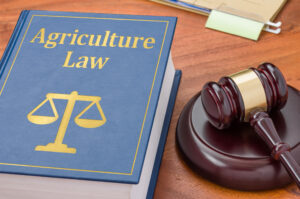A lawyer and a farmer walk into a field… While this scenario may sound like the intro to a bad joke, in the agricultural sector these kinds of relationships are key. Finding the right legal structure for your farm can be overwhelming. From liability and taxation to overall sustainability. It’s not a one-size fits all approach.
“While sole proprietorships and partnerships offer simplicity, they also come with inherent risks, as personal assets are exposed to business liabilities,” explains Rachel Armstrong, Executive Director of Farm Commons. “Alternatively, corporations and limited liability companies (LLCs) provide a layer of protection by separating personal and business assets, thus mitigating risk.”
However, merely establishing a legal entity is not enough to ensure success. Equally important is the creation of governance documents, such as operating agreements for LLCs and bylaws for corporations. These documents outline key aspects of the business, including ownership structure, decision-making processes, and dispute resolution mechanisms.
“Neglecting to draft comprehensive governance documents can spell trouble for farm businesses in the long run,” says Armstrong. “Clear layouts of roles, responsibilities, and decision-making processes can help mitigate conflicts and ensure the long-term viability of the farm business.”
Navigating local zoning regulations is another essential consideration for farmers. Thoroughly understanding zoning codes and building relationships with local regulatory officials can help farmers ascertain permissible activities on their land. She says this is especially true for agritourism, value-added processing, or on-farm housing.
“Zoning regulations vary widely depending on location, so it’s essential for farmers to familiarize themselves with local requirements. By proactively engaging with regulatory authorities and seeking clarity on land use permissions, farmers can avoid potential setbacks and ensure smooth operations.”
Furthermore, farmers must address risk management through comprehensive insurance coverage. Establishing relationships with trusted insurance agents and obtaining adequate coverage for property, liability, and other risks can provide financial protection in the event of accidents or natural disasters.
Lastly, succession planning is paramount for the long-term viability of farm businesses. While legal tools such as trusts and estate planning documents are essential components of succession planning, open and honest communication among family members is equally crucial.
“Smooth succession planning requires transparent discussions and careful consideration of family dynamics. While legal mechanisms can facilitate the transition from one generation to the next, fostering strong relationships and building consensus within the family are essential for ensuring a successful transition.”


